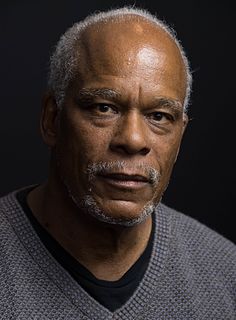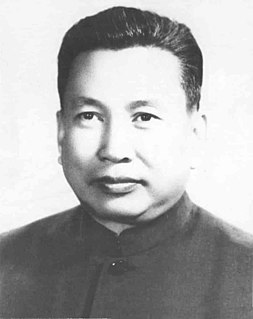A Quote by Rosa Luxemburg
On the one hand, we have the mass; on the other, its historic goal, located outside of existing society. On one hand, we have the day-to-day struggle; on the other, the social revolution. It follows that this movement can best advance by tacking betwixt and between the two dangers by which it is constantly being threatened. One is the loss of its mass character; the other, the abandonment of its goal. One is the danger of sinking back to the condition of a sect; the other, the danger of becoming a movement of bourgeois social reform.
Quote Topics
Related Quotes
Both for the production on a mass scale of this communist consciousness, and for the success of the cause itself, the alteration of men on a mass scale is necessary, an alteration which can only take place in a practical movement, a revolution; this revolution is necessary, therefore, not only because the ruling class cannot be overthrown in any other way, but also because the class overthrowing it can only in a revolution succeed in ridding itself of all the muck of ages and become fitted to found society anew.
I have repeatedly stressed that the selfish impulses of man constitute a much less historic danger than his integrative tendencies. To put it in the simplest way: the individual who indulges in an excess of aggressive self-assertiveness incurs the penalties of society-he outlaws himself, he contracts out of the hierarchy. The true believer, on the other hand, becomes more closely knit into it; he enters the womb of his church, or party, or whatever the social holon to which he surrenders his identity.
If a poet has any obligation toward society, it is to write well. Being in the minority, he has no other choice. Failing this duty, he sinks into oblivion. Society, on the other hand, has no obligation toward the poet. A majority by definition, society thinks of itself as having other options than reading verses, no matter how well written. Its failure to do so results in its sinking to that level of locution at which society falls easy prey to a demagogue or a tyrant. This is society's own equivalent of oblivion.
Our vulnerability [to ressentiment] is unavoidable (and probably incurable) in a kind of society in which relative equality of political and other rights and formally acknowledged social equality go hand in hand with enormous differences in genuine power, possessions and education; a society in which everyone "has the right" to consider himself equal to everybody else, while in fact being unequal to them.
The boy and girl going hand in hand through a meadow; the mother washing her baby; the sweet simple things in life. We have almost lost track of them. On the one side, we over-intellectualize everything; on the other hand, we are over-mechanized. We can understand the danger of the atomic bomb, but the danger of our misunderstanding the meaning of life is much more serious.
Changing the structure and rules of the global economy will require a mass movement based on messages of compassion, justice, and equality, as well as collaborative and democratic processes ... If we stay positive, inclusive, and democratic, we have a truly historic opportunity to build a global movement for social justice.
You yourself create all your misery, hour after hour, day after day. You think the goal justifies the means, even the vile means. You are wrong: The goal is in the path on which you arrive at it. Every step of today is your life of tomorrow. No great goal can be reached by vile means. That you have proven in every social revolution. The vileness or inhumanity of the path to the goal makes you vile or inhuman, and the goal unattainable.
For any two portions of fire, small or great, will exhibit the same ratio of solid to void; but the upward movement of the greater is quicker than that of the less, just as the downward movement of a mass of gold or lead, or of any other body endowed with weight, is quicker in proportion to its size.





































